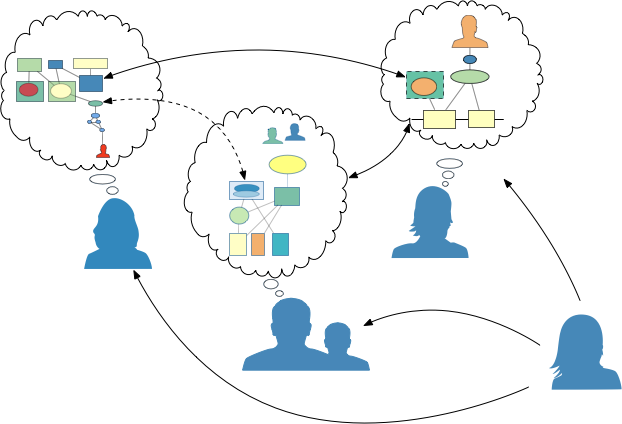“It’s impossible for me to look at incidents like I used to. It’s as if I’m seeing in color for the first time.”
– Coaching Participant
Meaningful learning from incidents requires an environment and expertise that most organizations do not have.
There is a dearth of effective incident analysis expertise in the software industry, and we aim to change that.
Learning is important; continuous learning is crucial.
Your system — and the world using it — are changing all the time. Understanding how it all works and fails is critical, but cannot be done effectively as “side work” – it must be seen and supported as an expertise to build and invest in.

Producing calibrated event reconstructions, creating meaningful representations, promoting insight extraction, and facilitating learning… these are skills that can be learned and improved. We focus on building a cadre of incident analysts capable of carrying out these activities in the company. This cadre makes continuous learning from incidents possible.
The project includes both training and coaching. Formal workshops kick-off and conclude the project. In between, participants work through the analysis and post-incident review meeting facilitation of incidents under the guidance of ACL principals.
The close, individual attention will produce a high-intensity learning-by-doing experience. The project includes opportunities for participants to critique their performance, share their experiences, leverage learning from past incidents, and develop and refine tools for investigation and analysis.
What the project covers
Event reconstruction
- How to identify, collect, assess, and collate the data relevant to the incident
- Approach to iterative incident reconstruction
- Identifying data sources
- Analyzing incident response chat and audio transcriptions
Identification of critical intra-incident elements
- How to recognize important decisions, actions, and junctures during and immediately after an incident
Debriefing and interviewing methods and techniques
- How to plan and carry out interviews with key actors
Theme extraction and narrative composition
- How to identify and capture the issues that drove attention and action
- How to compose compelling analysis write-ups that support the broadest audience of readers
Understanding context
- How to analyze the backdrop & conditions that existed before the incident
- What shaped the origin & handling of the event?
- What makes the reverberations play out the way they do?
- What does this imply for ongoing work?
Group debriefing and dialogue facilitation
- How to prepare presentation materials to encourage exploration and generative discussion by others
- What makes a good presentation?
- Guiding discussions that go astray.
- Naming elephants in the room.
Recognizing and managing organizational tensions
- How to respond to strong reactions.
- Incidents can evoke strong responses and even bad behavior that makes useful incident analysis difficult.
These experts will become adept at:
- Building a coherent, detailed description of the event as it unfolded;
- Identifying the systemic factors that produced the event and shaped the response;
- Recognizing novel aspects of the incident and response that reveal systems behavior and the expertise of incident responders;
- Preparing presentation materials that show these in a context that encourages both exploration and productive discussion by others;
- Facilitating the exploration and discussion in a group setting; and
- Producing a succinct record that synthesizes the data, analyses, and insights produced.
We help you go beyond the typical template-driven “post-mortem” approach focused only on shallow incident data. We bring decades of experience in event reconstruction, systems safety research, resilience engineering, and accident investigation to the world of software engineering and operations.